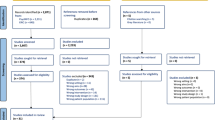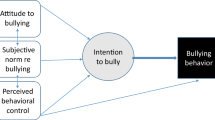Abstract
This study assessed the relationships between adjustment and maladjustment to college life and faculty incivility (FI). Two FI constructs were used: Active FI and passive FI. The first includes serious incivilities, such as personal comments or verbal attacks against students; the second pertains to more subtle incivilities, such as inadequate communications and avoidance. Two scales were administered to 744 undergraduate college students: The College Adjustment Test (CAT), and the Perceived Faculty Incivility Scale (PFIS). A paired-samples t-test result showed a significantly higher mean result for the passive FI compared with active FI. In addition path model results showed that those who reported higher levels of uncivil encounters in the classroom have also reported an increase in their negative emotional level of adjustment to college life; whereas decreased levels of FI incivility encounters were associated with increased perceptions of adjustment to college. An additional path analysis result has associated maladjustment with passive FI only. Implications of these findings and directions for future research are discussed.


Similar content being viewed by others
References
Alt, D. (2014a). Using structural equation modeling and multidimensional scaling to assess students’ perceptions of the learning environment and justice experiences. International Journal of Educational Research, 69, 38–49.
Alt, D. (2014b). Assessing the connection between students' justice experience and attitudes toward academic cheating in higher education new learning environments. Journal of Academic Ethics, 12, 113–127.
Alt, D. (2014c). The construction and validation of a new scale for measuring features of constructivist learning environments in higher education. Frontline Learning Research, 3, 1–27.
Alt, D. (2015). Using structural equation modeling and multidimensional scaling to assess female college students' academic adjustment as a function of perceived parenting styles. Current Psychology. doi:10.1007/s12144-015-9320-3.
Alt, D., & Geiger, B. (2012). Goal orientations and tendency to neutralize academic cheating: An ecological perspective. Psychological Studies, 57(4), 404–416.
Alt, D., & Itzkovich, Y. (2015). Assessing the connection between students' justice experience and perceptions of faculty incivility in higher education. Journal of Academic Ethics, 13, 121–134.
Altmiller, G. (2012). Student perceptions of incivility in nursing education: implications for educators. Nursing Education Perspectives, 33(1), 15–20.
Amir, M. (1967). Victim precipitated forcible rape. The Journal of Criminal Law, Criminology, and Police Science, 58(4), 493–502.
Andersson, L. M., & Pearson, C. M. (1999). Tit for tat? the spiraling effect of incivility in the workplace. Academy of Management Review, 24(3), 452–471.
Aquino, K., & Thau, S. (2009). Workplace victimization: aggression from the target perspective. Annual Review of Psychology, 60, 717–741.
Arnett, J. J. (2001). Conceptions of the transition to adulthood: perspectives from adolescence through midlife. Journal of Adult Development, 8, 133–143.
Arnett, J. J., & Taber, S. (1994). Adolescence terminable and interminable: when does adolescence end? Journal of Youth and Adolescence, 23(5), 517–537.
Baker, R. W., & Siryk, B. (1989). Student adaptation to college questionnaire manual. Los Angeles: Western Psychological Services.
Baldwin, D. R., Mclntyre, A., & Hardaway, E. (2007). Perceived parenting styles on college students’ optimism. College Student Journal, 41, 550–557.
Bentler, P. M. (2006). EQS 6 structural equations program manual. Encino: Multivariate Software, Inc.
Berger, B. A. (2000). Incivility. American Journal of Pharmaceutical Education, 64(4), 445–450.
Beyers, W., & Goossens, L. (2002). Concurrent and predictive validity of the student adaptation to college questionnaire in a sample of european freshman students. Educational & Psychological Measurement, 62, 527–538.
Bjorklund, W. L., & Rehling, D. L. (2010). Student perceptions of classroom incivility. College Teaching, 58, 15–18.
Blau, G., & Andersson, L. (2005). Testing a measure of instigated workplace incivility. Journal of Occupational and Organizational Psychology, 78(4), 595–614.
Brady-Amoon, P., & Fuertes, J. N. (2011). Self-efficacy, self-rated abilities, adjustment, and academic performance. Journal of Counseling and Development, 89(4), 431–438.
Braxton, J. M., Proper, E., & Bayer, A. (2011). Professors behaving badly: Faculty misconduct in graduate education. Baltimore: The Johns Hopkins University Press.
Caza, B. B., & Cortina, L. M. (2007). From insult to injury: explaining the impact of incivility. Basic and Applied Social Psychology, 29(4), 335–350.
Chen, H. F. (2010). The relationships of organizational justice, social exchange, psychological contract, and expatriate adjustment: an example of taiwanese business expatriates. International Journal of Human Resource Management, 21(7), 1090–1107.
Clark, C. M. (2007). Thoughts on incivility: students and faculty perceptions of uncivil behavior in nursing education. Nursing Education Perspectives, 28(2), 93–97.
Clark, C. M. (2008). Faculty and student assessment of and experience with incivility in nursing education. Journal of Nursing Education, 47(10), 458–467.
Clark, C. M., Olender, L., Kenski, D., & Cardoni, C. (2013). Exploring and addressing faculty-to-faculty incivility: a national perspective and literature review. Journal of Nursing Education, 52(4), 211–218.
Cohen, J. (1988). Statistical power analysis for the behavioral sciences (2nd ed.). Hillsdale: Lawrence Erlbaum.
Cortina, L. M., Magley, V. J., Williams, J. H., & Langhout, R. D. (2001). Incivility in the workplace: incidence and impact. Journal of Occupational Health Psychology, 6(1), 64–80.
Coyle, T. R., & Pillow, D. R. (2008). SAT and ACT predict college GPA after removing g. Intelligence, 36, 719–729.
Credé, M., & Niehorster, S. (2012). Adjustment to college as measured by the student adaptation to college questionnaire: a quantitative review of its structure and relationships with correlates and consequences. Educational Psychology Review, 24(1), 133–165.
Curtis, L. A. (1974). Victim precipitation and violent crime. Social Problems, 21(4), 594–605.
Drapkin, I., & Viano, E. (1974). Victimology: A new focus. London: Lexington Books.
Feldmann, L. J. (2001). Classroom civility is another of our instructor responsibilities. College Teaching, 49(4), 137–140.
Galbraith, M. W., & Jones, M. S. (2010). Understanding incivility in online teaching. Journal of Adult Education, 39(2), 1–10.
Geddes, K. A. (2011). Academic dishonesty among gifted and high-achieving students. Gifted Child Today, 34, 50–56.
Grandey, A. A., Kern, J. H., & Frone, M. R. (2007). Verbal abuse from outsiders versus insiders: comparing frequency, impact on emotional exhaustion, and the role of emotional labor. Journal of Occupational Health Psychology, 12(1), 63–79.
Henle, C. A., & Gross, M. A. (2014). What have i done to deserve this? effects of employee personality and emotion on abusive supervision. Journal of Business Ethics, 122, 461–474.
Hezlett, S. A., Kuncel, N. R., Vey, M. A., Ahart, A., Ones, D. S., Campbell, J. P., & Camara, W. (2001, April). The predictive validity of the SAT: A comprehensive meta-analysis. In D.S. Ones & S.A. Hezlett (Chairs), Predicting performance: The interface of I/O psychology and educational research. Symposia presented at the annual conference of the Society for Industrial and Organizational Psychology, San Diego, CA.
Hickman, G. P., & Crossland, G. L. (2004). The predictive nature of humor, authoritative parenting style, and academic achievement on indices of initial adjustment and commitment to college among college freshmen. Journal of College Student Retention, 6, 225–245.
Hutton, S., & Gates, D. (2008). Workplace incivility and productivity losses among direct care staff. AAOHN Journal, 56(4), 168–175.
Itzkovich, Y. (2014). Incivility: The moderating effect of hierarchical status. Does a manager inflict more damage? Journal of Management Research, 6(3), 86–98.
Järvelä, S., Hurme, T.-R., & Järvenoja, H. (2011). Self- regulation and motivation in computer- supported collaborative learning environments. In S. Ludvigsen, A. Lund, I. Rasmussen, & R. Säljö (Eds.), Learning across sites: New tools, infrastructures and practices (pp. 330–345). London: Routledge.
Kamir, O. (2007). Legal-cultural thinking model. case study – lack of academic honesty and “honor system examination”. Din Udvarim, 4, 167–206 (Hebrew).
Knepp, K. A. F. (2012). Understanding student and faculty incivility in higher education. The Journal of Effective Teaching, 12(1), 32–45.
Koskina, A. (2013). What does the student psychological contract mean? evidence from a UK business school. Studies in Higher Education, 38(7), 1020–1036.
Kotrlik, J. W., & Williams, H. A. (2003). The incorporation of effect size in information technology, learning, and performance research. Information Technology, Learning, and Performance Journal, 21, 1–7.
Lasiter, S., Marchiondo, L., & Marchiondo, K. (2012). Student narratives of faculty incivility. Nursing Outlook, 60(3), 121–126.
Lim, S., & Lee, A. (2011). Work and nonwork outcomes of workplace incivility: does family support help? Journal of Occupational Health Psychology, 16(1), 95–111.
Marchiondo, K., Marchiondo, L. A., & Lasiter, S. (2010). Faculty incivility: effects on program satisfaction of BSN Students. Journal of Nursing Education, 49(11), 608–614.
McCabe, D. L., & Pavela, G. (2004). Ten [updated] principles of academic integrity: how faculty can foster student honesty. Change, 36, 10–14.
Morrison, L., & Robinson, S. L. (1997). When employees feel betrayed: a model of how psychological contract develops. Academy of Management Review, 22(1), 226–256.
Morrissette, P. (2001). Reducing incivility in the university college classroom. Electronic International Journal of Leadership Learning, 5(4), 1–12.
Nicholson, L., Putwain, D., Connors, L., & Hornby-Atkinson, P. (2011). The key to successful achievement as an undergraduate student: confidence and realistic expectations? Studies in Higher Education, 38(2), 1–14.
Olweus, D. (1978). Aggression in the schools: the bullies and the whipping boys. New York: Wiley.
Pearson, C. M., & Porath, C. L. (2005). On the nature, consequences and remedies of workplace incivility: No time for “nice”? Think again. Academy of Management Executive, 19(1), 7–18.
Pearson, C. M., Andersson, L. M., & Porath, C. L. (2000). Assessing and attacking workplace incivility. Organizational Dynamics, 29(2), 123–127.
Pennebaker, J. W., Colder, M., & Sharp, L. K. (1990). Accelerating the coping process. Journal of Personality and Social Psychology, 58, 528–537.
Petersen, I., Louw, J., & Dumont, K. (2009). Adjustment to university and academic performance among disadvantaged students in South Africa. Educational Psychology, 29(1), 99–115.
Pfeffer, J. (1981). Power in organizations. Boston: Pitman.
Quan, L., Zhen, R., Yao, B., & Zhou, X. (2014). The effects of loneliness and coping style on academic adjustment among college freshmen. Social Behavior and Personality, 42(4), 969–977.
Rousseau, D. M. (1989). Psychological and implied contracts in organizations. Employee Responsibility and Rights Journal, 2, 121–139.
Rousseau, D. M. (1995). Psychological contracts in organizations. Inc: SAGE Publications.
Schilpzand, P., De Pater, I. E., & Erez, A. (2015). Workplace incivility: a review of the literature and agenda for future research. Journal of Organizational Behavior. doi:10.1002/job.1976.
Sciarra, D. T., & Ambrosino, K. E. (2011). Post-secondary expectations and educational attainment. Professional School Counseling, 14, 231–241.
Silva, M., Dorso, E., Azhar, A., & Renk, K. (2007). The relationship among parenting styles experienced during childhood, anxiety, motivation, and academic success in college students. Journal of College Student Retention: Research, Theory & Practice, 9(2), 149–167.
Spies, A. R., Wilkin, N. E., Bentley, J. P., Bouldin, A. S., Wilson, M. C., & Holmes, E. R. (2010). Instrument to measure psychological contract violation in pharmacy students. American Journal of Pharmaceutical Education, 74(6), 107.
Tao, S., Dong, Q., Pratt, M. W., Hunsberger, B., & Pancer, S. (2000). Social support: relations to coping and adjustment during the transition to university in the People’s Republic of China. Journal of Adolescent Research, 15, 123–144.
The Central Bureau of Statistics. (2011). Women in higher education. Retrieved December 21, 2012 from http://www1.cbs.gov.il/www/publications/desc_exp/women.pdf (Hebrew)
The Council for Higher Education. (2009). Planning and Budgeting Committee 34/35 report. Retrieved July 20, 2010 from http://www.che.org.il/download/files /contents_1.pdf (Hebrew)
Thurber, C., & Walton, E. (2012). Homesickness and adjustment in university students. Journal of American College Health, 60(5), 1–5.
Wang, W., & Lei, L. (2013). The relationship of academic adjustment and parenting style of college freshmen: Personality as a moderator. Journal of Educational Theory and Practice, 10, 31–34.
Warr, P. B., & Knapper, C. (1968). The perception of people and events. New York: Wiley.
Wintre, M. G., & Yaffe, M. (2000). First-year students’ adjustment to university life as a function of relationships with parents. Journal of Adolescent Research, 15, 9–37.
Author information
Authors and Affiliations
Corresponding author
Rights and permissions
About this article
Cite this article
Alt, D., Itzkovich, Y. Adjustment to College and Perceptions of Faculty Incivility. Curr Psychol 35, 657–666 (2016). https://doi.org/10.1007/s12144-015-9334-x
Published:
Issue Date:
DOI: https://doi.org/10.1007/s12144-015-9334-x




